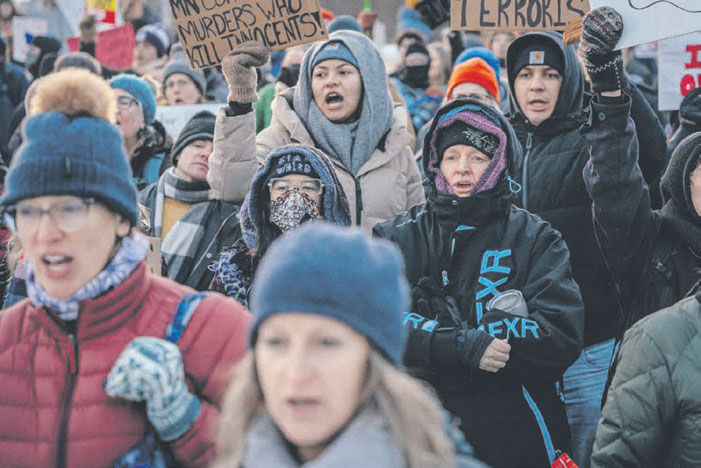Liz Cheney, a top GOP Trump critic, says she will vote for Harris
- The San Juan Daily Star

- Sep 6, 2024
- 3 min read

By Annie Karni
Former Rep. Liz Cheney, the once high-ranking Republican from Wyoming who torpedoed her political career by breaking forcefully with former President Donald Trump, said Wednesday she would be voting for Vice President Kamala Harris in November.
During an event at Duke University, Cheney told students that it was not enough for her to simply oppose the former president, if she intended to do whatever was necessary to prevent Trump from winning the White House again, as she has long said she would.
“I don’t believe we have the luxury of writing in candidates’ names, particularly in swing states,” Cheney said, speaking to students in the hotly contested state of North Carolina. “As a conservative, as someone who believes in and cares about the Constitution, I have thought deeply about this and because of the danger that Donald Trump poses, not only am I not voting for Donald Trump, but I will be voting for Kamala Harris.”
The room erupted in cheers after she made her unexpected announcement.
The decision by Cheney, whose endorsement Harris’ campaign had been courting for weeks, to shift from condemning Trump to backing the Democratic presidential nominee was a striking one even from a leader who has established herself as one of the most vocally anti-Trump Republicans in the country.
In an interview with Fox News in August of 2020, after Biden selected Harris as his running mate, Cheney described his pick as someone “whose voting record in the Senate is to the left of Bernie Sanders and Elizabeth Warren.” She added: “It’s very clear, she is a radical liberal.”
Cheney, a daughter of former Vice President Dick Cheney, is a member of a private and deeply conservative political family. She is pro-gun and anti-abortion and favors a stronger national defense.
Harris’ top aides had said they were not certain whether Cheney, who shares few policy positions with the vice president, would go a step further and make an outright endorsement of Harris, or simply spend the time between now and Election Day laying out the case against Trump.
That is the route that some other prominent Republicans have chosen. On Tuesday, Pat Toomey, an ultraconservative former Republican senator from Pennsylvania, said he would not be supporting Trump in the fall, but he said he could not vote for Harris, either.
But Cheney explicitly rejected Toomey’s approach, potentially creating a model for deeply conservative voters reluctant to back Trump to pull the lever for a Democrat for the first time in their lives.
It was her latest break with the Republican Party after losing her leadership position and then her seat for condemning Trump after the Jan. 6, 2021, attack on the Capitol and voting to impeach him for inciting insurrection. She spent her final months in Congress serving on the special House committee that investigated the assault, and has continued to speak out strongly against Trump and make the case publicly that he is a threat to the republic.
Cheney’s speech was an important show of support for Harris, who has been pouring tens of millions of dollars into a paid media campaign targeting anti-Trump Republicans. Harris’ campaign has hired a full-time national Republican engagement director and featured Republicans onstage at the nominating convention last month.
But Cheney had remained silent until now. She chose not to speak at the Democratic National Convention, making the decision to wait for a stand-alone moment in September, closer to when early voting was set to begin.






Comments